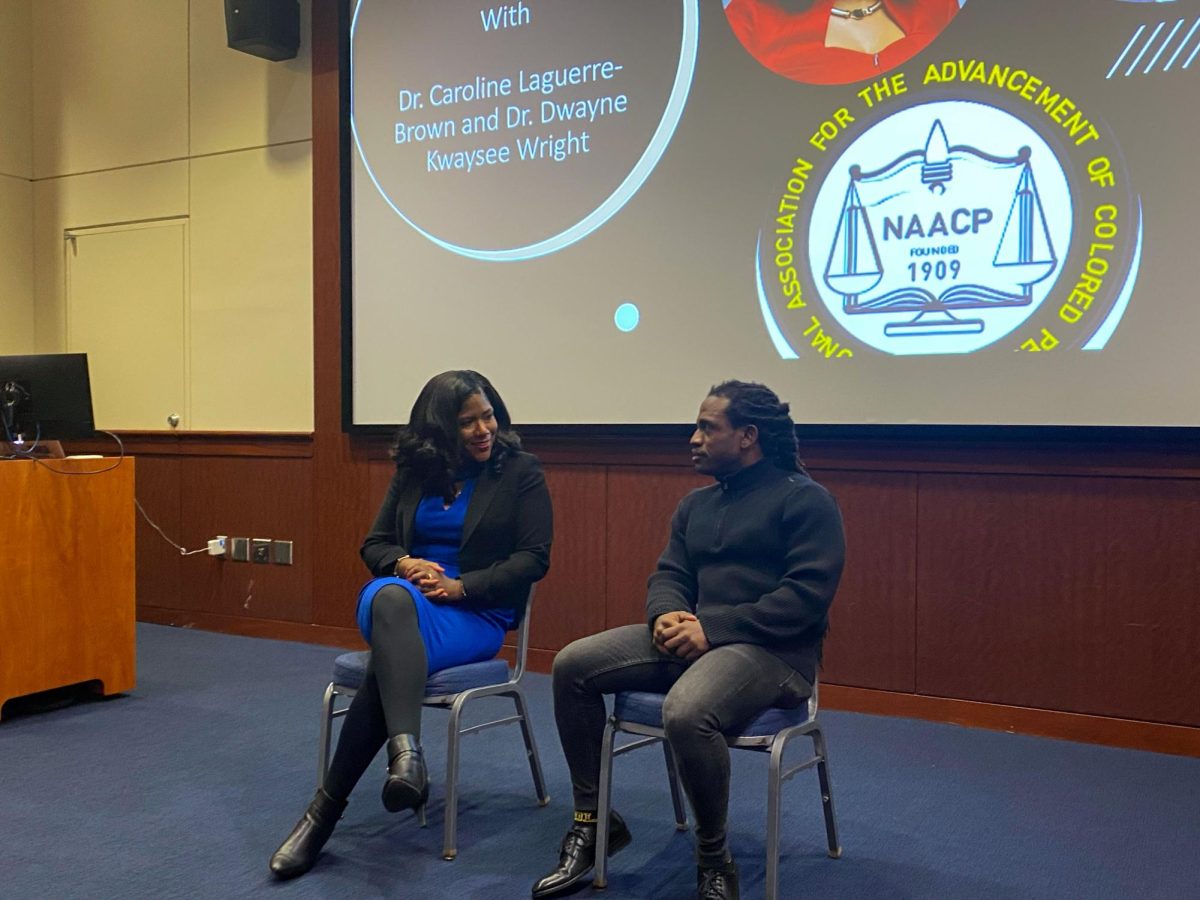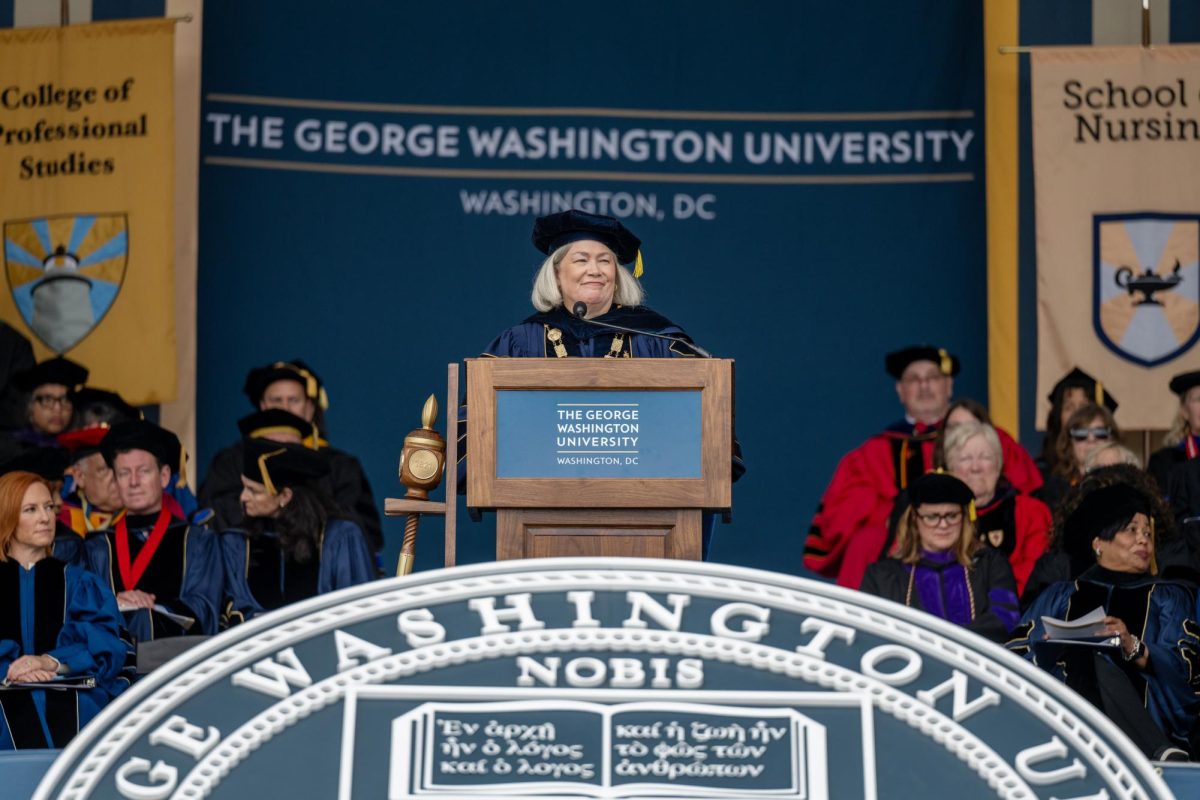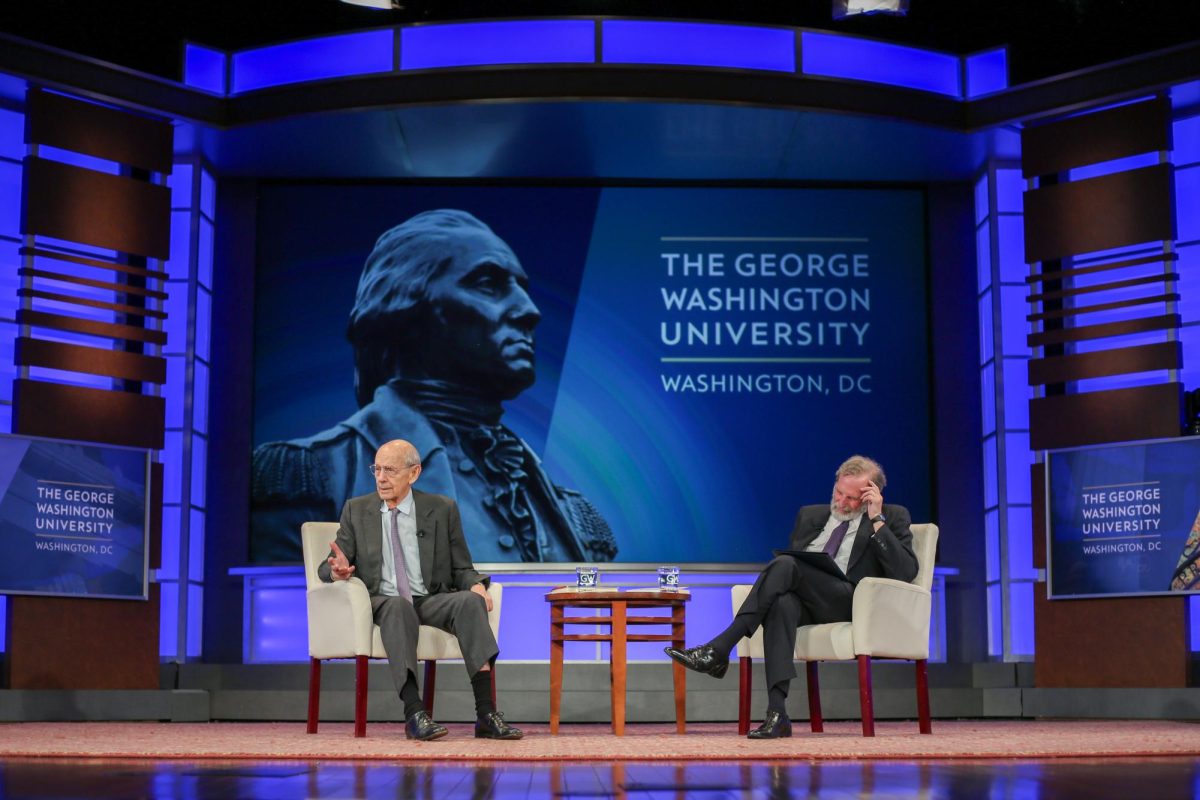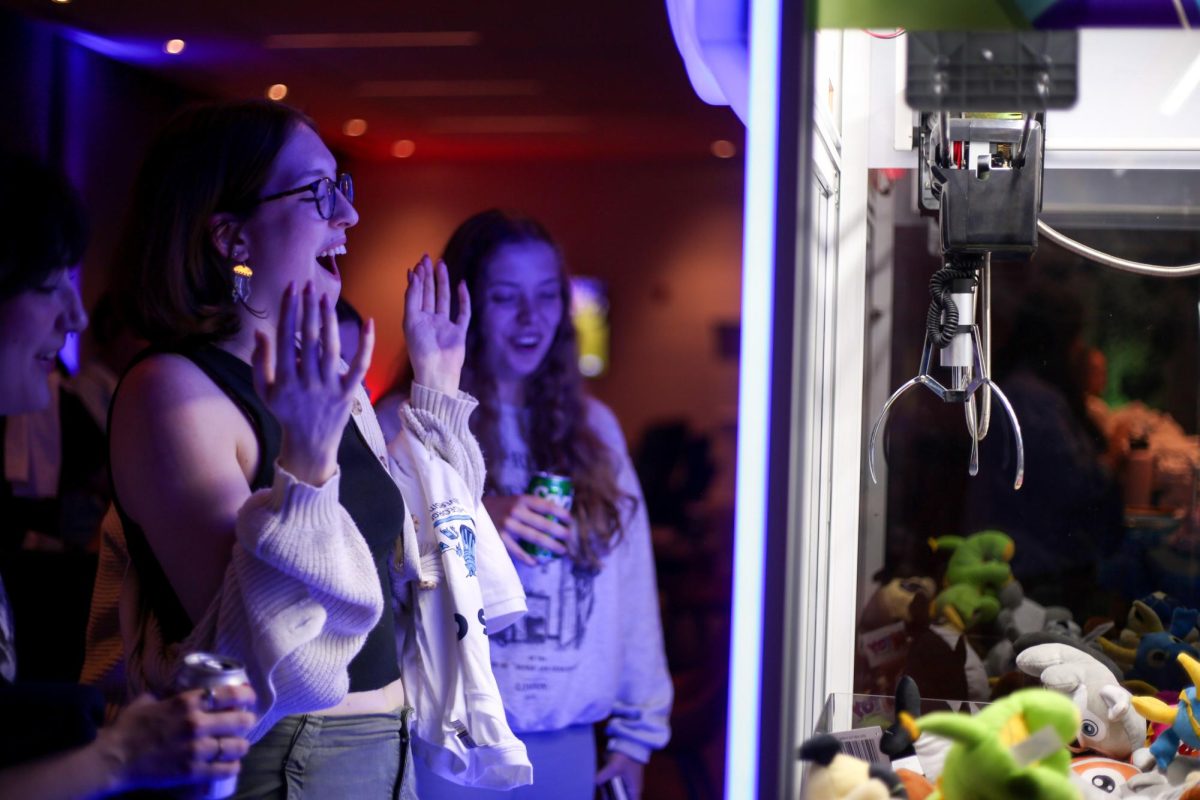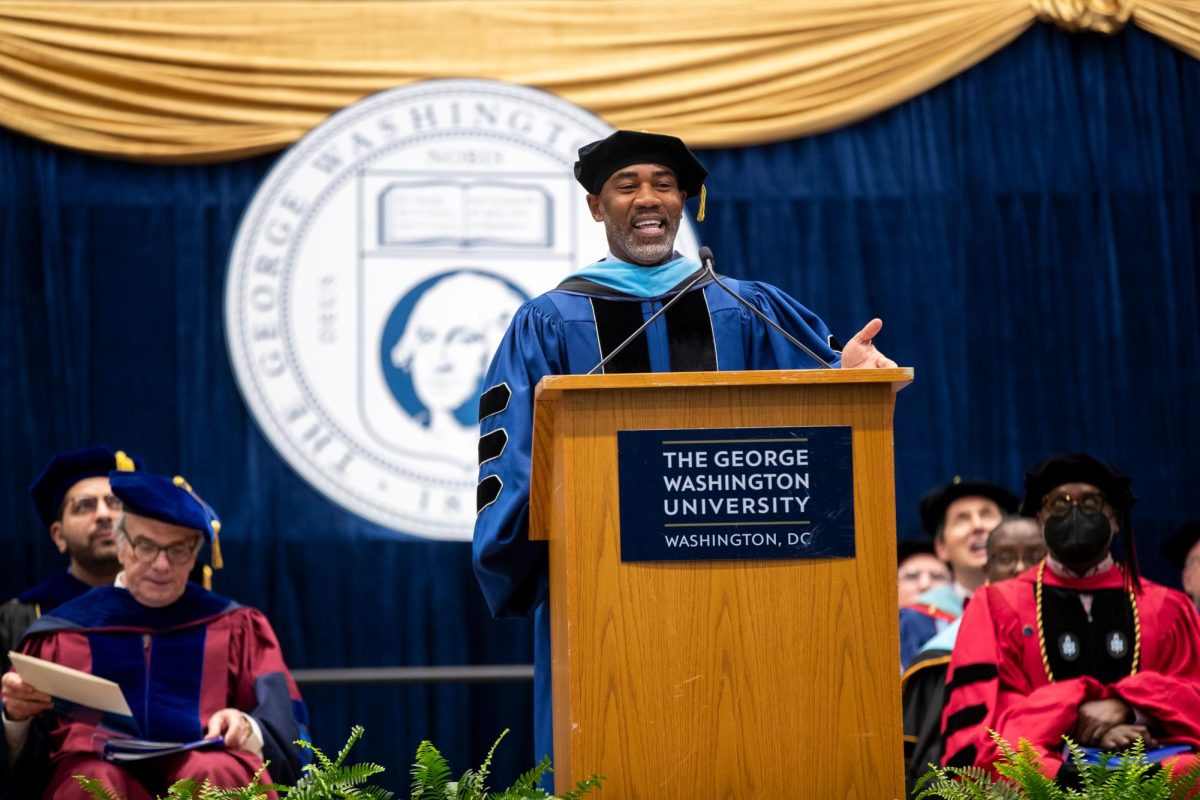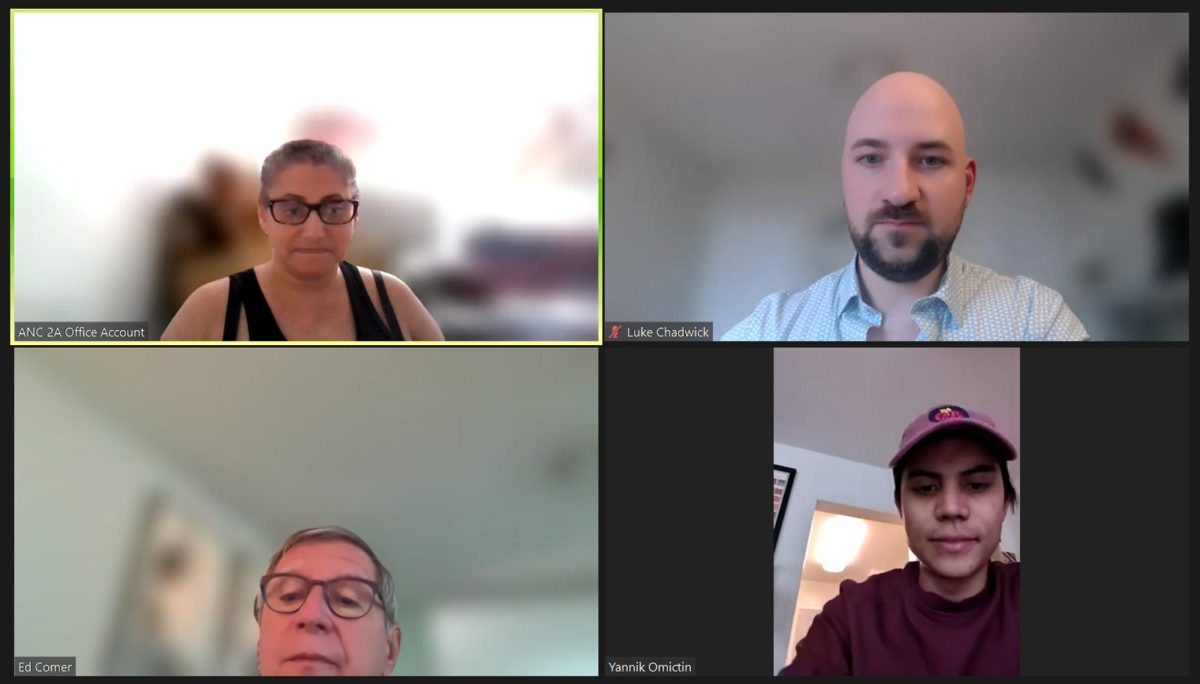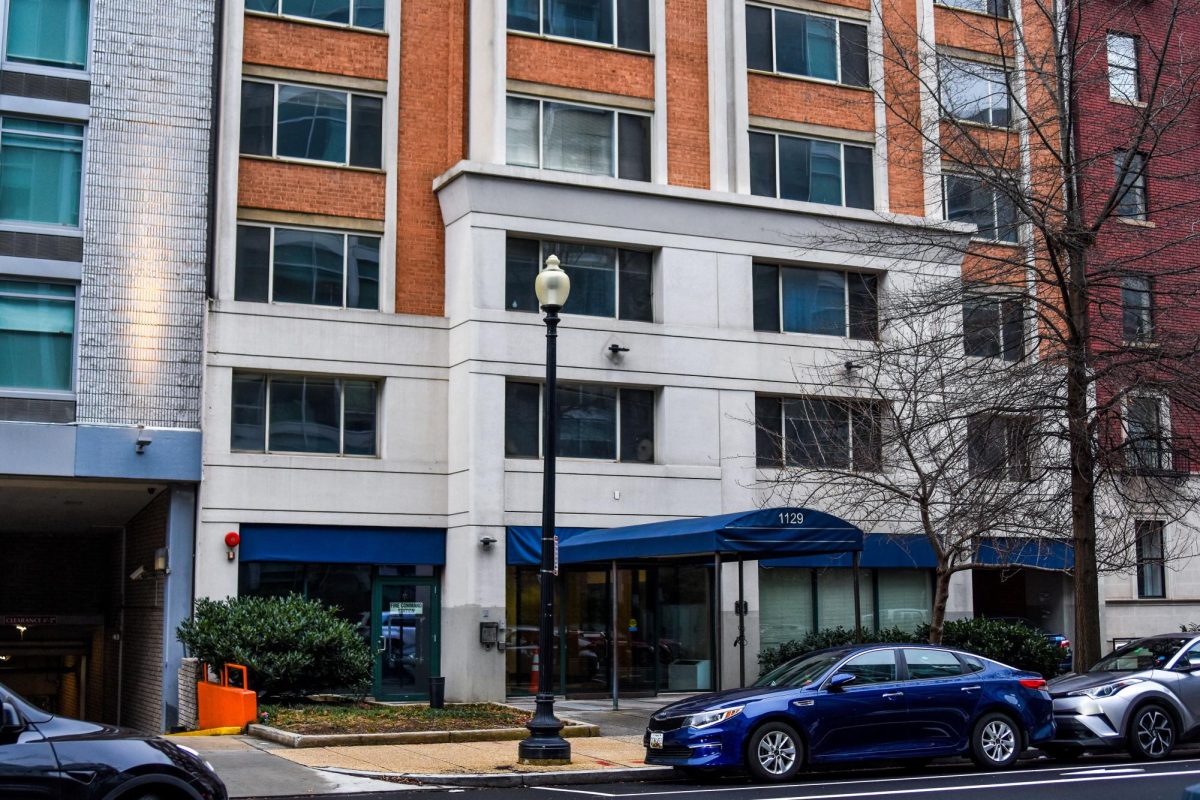Updated: Oct. 20, 2023, at 5:02 p.m.
Officials discussed the history of affirmative action and the Supreme Court’s decision to strike down affirmative action at the University Student Center Amphitheater on Monday.
Vice Provost for Diversity, Equity and Community Engagement Caroline Laguerre-Brown and Dwayne Kwaysee Wright, an assistant professor of higher education administration and the Graduate School of Education and Human Development director of diversity, equity and inclusion initiatives, said they weren’t surprised by the court’s decision. The conversation was hosted by the GW chapter of the National Association for the Advancement of Colored People and moderated by senior Kayla Laws, the president of GWU NAACP.
The Supreme Court held that universities cannot consider race as a factor when making admissions decisions in June. The ruling reversed Grutter v. Bollinger, a 2003 case in which the Supreme Court ruled that considering minority status for admission is not harmful to nonminorities.
In response to the decision, deans from GW’s 10 schools and colleges said they would work to foster diversity and inclusivity in their respective programs. The Student Association Senate denounced the Supreme Court’s ruling and released a joint statement that said members of the SA would hold GW officials accountable to the University’s diversity, equity and inclusion standards.
Wright said the dissenting opinions from Justices Sonia Sotomayor and Kentanji Brown Jackson criticizing the decision gave him hope because they “planted seeds” for the court’s potential reversal of the ruling in the future.
“Anyone that knows anything about the law knows that the dissenting opinions of old can become the majority opinions,” Wright said.
Wright said affirmative action was never the goal for marginalized communities, but it was “fair competition” between members of those communities and other applicants. He said affirmative action became necessary because some employers only consider graduates from Ivy League universities to avoid hiring applicants from marginalized communities.
“There are many employers, some are universities, some are law firms that would rather hire the last person that graduates from Harvard Law than the first person that graduates from Howard Law,” Wright said.
Wright said history of systemic racism serves as evidence that a colorblind society does not exist, despite claims by supporters of affirmative action that the only fair approach to college admissions is a colorblind, merit-based one.
“My mother was a grown adult, and it wasn’t until that time that Brown v. Board of Education, that Jim Crow was not a thing,” Wright said. “And even after that, there was still 10 years of fighting. The 1964 Civil Rights Act was 10 years after Brown v. Board of Education.”
Brown said conversations about ending affirmative action have happened long before the Supreme Court’s ruling and that universities fear qualified students from underrepresented communities won’t apply to their schools because of the decision. Brown said the University needs to engage with these communities to strengthen its student body.
“We have to keep our name in circulation, we have to go to places we haven’t gone to before, we have to form relationships with possible feeder organizations that we haven’t before,” Brown said. “We’ve got to keep the interest among these communities, underrepresented communities, high in GW so that we can continue to attract high quality, talented students from across the nation.”
Brown encouraged students from minority communities to continue to pursue their dreams when applying to college and to disclose their race on applications only if they want to. She said many colleges are still committed to having a diverse student body despite no longer allowing the consideration of race in admissions.
“In the days after the Supreme Court opinion was issued, almost every school in the nation issued a statement reaffirming their commitment to diversity, equity and inclusion,” Brown said. “They want you.”
Brown said students need to put down their phones and engage in their communities to organize if they oppose the repeal of affirmative action.
“It’s important to vote but it’s more important to get your neighbors and your friends to vote,” Brown said. “It’s important to understand and know what’s going on in your local community and vote in all of your non-presidential elections. But it’s also important if you really are passionate and care about your community, to get involved, to run for office, to go to another state and canvass.”
Laws said the GW NAACP chapter will hold a second part to the discussion in the spring.
This post was updated to include the following:
The Hatchet updated this post to include a quote from Brown that better characterizes her sentiments toward engaging with the community to protest the repeal of affirmative action.


